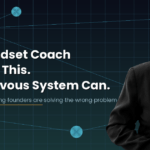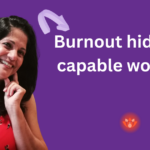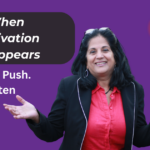When you’ve built a life of achievement, when you lead, deliver, and hold space for others, it can be hard to admit something feels off. What are emotional triggers really? But beneath the surface of success, there it is: fatigue that won’t fade. Anxious loops that hijack your clarity. Quiet shame rises after another spiral of overthinking or fear.
This isn’t a mindset problem. It’s a trigger response. A stress response to something unresolved within you.
And you don’t even realise it’s happening.
Because on the surface? You function. You cope. You keep going. But inside, you’re reacting to situations with an intensity that surprises even you. One email. One tone. One moment. And suddenly, your body tightens, your breath shallows, and your thoughts spin into “what ifs.”
You think it’s just stress. You tell yourself to push through. But what’s really happening is this:
You’re being hijacked by old pain.
What are Emotional Triggers Really?
A trigger isn’t about what just happened. It’s your body’s response to what it remembers.
Most triggers aren’t about the client, the email, or your partner. They’re echoes of unmet emotional needs—from childhood, past relationships, or unresolved experiences.
That’s why something small can feel so big because it touches the part of you that still feels unsafe.
My Client’s Story: The Invisible Load of High Achievement
Take my client Marie, a consultant running a successful business. On the outside, she had it all together. But one question—”Can you walk me through this decision?” sent her nervous system into overdrive.
Her thoughts raced: “I’m failing.” “I should’ve done more.” “They’ll leave.”
It wasn’t about the question. It was about her past. As a child, when her father questioned her, she felt punished, dismissed, and afraid.
This wasn’t a mindset issue. It was emotional conditioning. And Marie is far from alone.
Why You Might Miss the Signs
Most people think they’re doing “fine.”
They say:
- Everyone feels this drained.
- It’s just the cost of ambition.
- If I push harder, I’ll get through it.
So they:
- Overthink minor interactions
- Say yes to avoid conflict
- Work through exhaustion
- Hide their stress, shrink their voice, and wonder why they feel invisible
They call it burnout, imposter syndrome, and perfectionism. But often? It’s unprocessed trauma in a power suit.
The Real Problem Isn’t the Trigger. It’s the Lack of Support Around It.
You’ve probably been told:
- “Control your thoughts.”
- “Be more disciplined.”
- “Just set better boundaries.”
But that advice misses the point.
Your thoughts aren’t the root. Your nervous system is.
When your body is stuck in fight-or-flight, it doesn’t matter how successful or self-aware you are. Your system still thinks it’s unsafe.
And that’s when fear and anxiety take over.
Patterns That Signal Hidden Triggers
You might be triggered if you:
- Assume people are disappointed in you
- Over-apologise or over-explain
- Fixate on mistakes
- Avoid saying no out of guilt
- Feel “too much” and yet never enough
- Constantly compare yourself
- Freeze when facing decisions
These aren’t flaws. They’re survival responses. Your system is crying out for care—not critique.
What Triggers Are Trying to Tell You
Every trigger carries a message. It’s not saying, “You’re broken.” It’s saying, “Something still needs care.”
As Dr. Gabor Maté puts it:
“Trauma is not what happened to you. It’s what happened inside you as a result.”
Triggers are emotional echoes. They show you where your nervous system is still holding on.
The 4-Step Trigger Reset
You don’t need to overhaul your life. You need micro-moments of awareness.
Try this:
- Pause Acknowledge: “I feel triggered.” Breathe slowly. This interrupts the spiral.
- Track Your Body. Where do you feel it: chest, throat, stomach? Notice it without judging.
- Ask: Who Is This Really About? What memory or early relationship does this resemble?
- Respond From the Present Speak a need. Set a boundary. Ground your feet. Take a calming breath.
This shifts you from reactivity to leadership. From past to present.
This Isn’t Just Emotional Work. It’s Strategic Leadership.
Unchecked emotional triggers can:
- Make you over-deliver and undercharge
- Sabotage leadership and team dynamics
- Fuel burnout cycles
- Muffle your intuition when you need it most
Responding to your triggers isn’t indulgent. It’s essential.
Because when you meet them with awareness:
- You think clearer
- You connect deeper
- You move with steadiness
And most importantly, you lead yourself first.
Final Truth: Emotional Triggers Aren’t the Enemy. They’re the Messenger.
They’re signals. They carry emotional data. They point to the parts of you still waiting to be met with compassion.
Every time you meet a emotional triggers with curiosity, not judgment, you rewrite the pattern.
You are not too sensitive. You are not dramatic. You are someone whose brilliance deserves a regulated nervous system.
If you’re ready to create space for that, you don’t have to do it alone.
Join the Reset & Rewire Masterclass or message me privately to begin this journey together.






